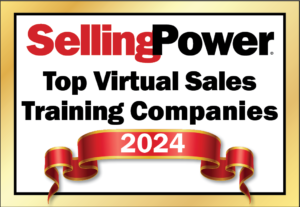Should You Outsource Incentives?
How can you tell whether or not you should be outsourcing your incentive program? As a general rule of thumb, small to medium-size companies with relatively few salespeople can handle their own programs, says Roy Saunderson, founder and president of The Recognition Management Institute.
For other sales organizations, however, “bringing in an outside provider is often a better business decision,” he says. According to Saunderson, the following are indicators that your incentive program might be better run by an outside firm:
- There are multiple individuals maintaining the incentive system at moderate salary budgets.
- Your company invests heavily on incentives but your program lacks accountability, reporting tools, and cost/benefit outcomes.
- Your employees complain about inconsistent practices and/or a lack of meaningful rewards.
Incentive Intelligence managing director Paul Hebert says the choice between in-house and outsourced incentive programs often boils down to how well a company can handle the motivational challenges inherent in the complicated web that is the modern-day sales process.
“Many organizations today need complex structures and tracking mechanisms for a program’s goals,” he says. “They have complex sales cycles and steps to the sale, as well as multiple channels and relationships driving the sale — salespeople, sales engineers, account managers, etc. How do you value each one’s contribution? How do you track and manage the data? Full-service incentive companies can help take disparate data sources and information and consolidate them for a good view of the performance in the audience.”
Hebert notes that sales organizations with less far-reaching needs can use lower-service providers — including suppliers that exclusively handle award fulfillment; online companies that connect clients’ data to catalogs; or firms that provide individual travel rewards, group travel, or general catalog merchandise.
“In many cases,” he says, “those that have simple program rules, smaller, homogeneous audiences, and great data sources could probably benefit from a less than full-service company. In today’s world, I see no reason for any company to keep all elements in-house. It is too easy today to connect to fulfillment suppliers and other providers that can handle the work for a company.”
How to Measure Success
How can you figure out what solution best fits your needs? Ira Almeas of Impact Incentives notes that most third-party companies ask a series of targeted questions to help establish the following measurements of success:
- identification of core marketing objectives (e.g., increasing sales, raising the bar for the middle tier, employee retention, or nonsales objectives);
- obtainable goals;
- positive engagement throughout the sales team;
- a marketing and communication timeline that supports a dynamic rewards program;
- C-suite buy-in;
- reward redemptions that generate enthusiasm and excitement.
Generally speaking, Hebert says, the most common objection he hears involves cost. Executives often feel that they can do everything cheaper and better in-house. But they fail to take into account hidden costs: “One is the cost to internal teams that now have to support the program, which, depending on the company and its program, could be a full-time job for some people — over and above their normal work load.
“And then, rarely do companies take into account the ‘cost’ of doing a program wrong. In many cases, the true role of a quality incentive supplier is insurance. There is less chance of a disaster — overpaying, unintended consequence, etc. So there is a cost of ‘amateur’ design and operation that is hard to quantify but is real.”
On the other side of the ledger, Hebert notes, third-party providers bring a wealth of innovative ideas and new direction, culled from working with dozens of previous clients who may have faced the same motivational challenges.
Keep Expectations Realistic
For all the benefits outside incentives solutions providers offer, however, they can’t solve all problems.
“Almost every program an incentive company designs will use awards as a carrot,” Hebert says. “That’s not necessarily bad, but the client needs to understand that there may be other issues that need to be addressed that awards won’t impact. Many sales problems are training or process-related, not motivation-related. Very few providers will address those issues, since they can’t sell an award.”
Which relates to a final caution for sales organizations looking to bring in a third-party incentives supplier: Providers will often design programs to maximize award earning and redemption, the same metrics that determine what the supplier is paid. For this reason, clients working with third-party consultants should insist that the salespeople’s goals involve reaching sales targets, and not achieving a certain number of points.
“To avoid this conflict, I don’t do awards,” Hebert says. “I do program design only. I don’t care whether there are awards or not, I care that clients hit their numbers. We do recommend incentives and recognition when it is the right answer, but only when it’s the best way to get the best program.”
Subscribe to this monthly Incentives e-newsletter for more expert advice on keeping your sales team motivated and showing appreciation to loyal customers, partners, and colleagues. More e-newsletters
Get our eNewsletter
Get the latest sales leadership insight, strategies, and best practices delivered weekly to your inbox.
Sign up NOW →